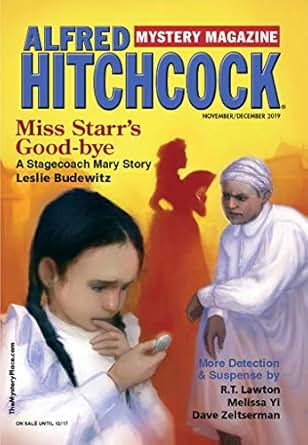"A Hell of a Thing," by Wayne J. Gardiner, in Alfred Hitchcock's Mystery Magazine, September/October 2021.
This is the second appearance here by Wayne J. Gardiner. It doesn't have a complicated plot, more of a slice-of-life story.
On the first page Carly does something most officers never need to do in their whole careers: fire her weapon in action. In fact, she shoots three armed robbers and she shoots them all dead.
The rest of the story is about her trying to find ways to cope with her reactions and those of the people around her. And, perhaps inevitably, there is a niggling self-doubt: Is she sure the first robber was turning his gun toward her?
It is a moving tale, well-told.















